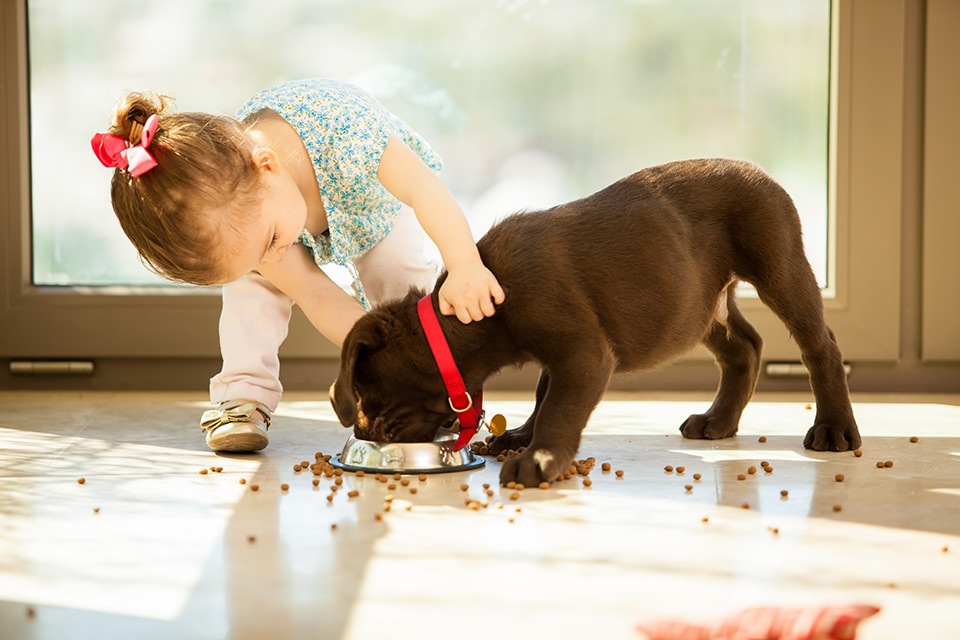Top 10 Pets for Children Under 10
Guinea Pigs
Guinea pigs are a great beginner pet. They do require good knowledge of care and feeding, but are typically very social, calm, and friendly.
Rats
Contrary to popular belief, rats are relatively clean animals and are very social.Their intelligence may also allow for them to be trained to do tricks which can be a lot of fun!
Gerbils
These little guys are fast and less social than some of the other pocket pets, but are great for a busier household.
Hamster
Hamsters are great for kids as they watch them run on the wheel or through their tunnels. But be careful, some smaller breeds tend to be more nippy than larger breeds.
Rabbits
For slightly older children and with good supervision, rabbits can be a great addition to your family. They can be friendly and calm pets, but need to be handled carefully and may not be the best pet for a rambunctious child.
Dogs & Cats
Cats and dogs are probably better suited to the 6+ age range, but helping to feed, walk, groom, and otherwise care for dogs and cats is a great confidence builder and teaches responsibility.
Make sure you are evaluating your goals and lifestyle closely when considering what kind of dog to get, there are so many different temperaments and characteristics that you need to make sure you are matching your goals and what your dog has to offer.
Betta Fish
These colorful little guys are a good starter fish as they are relatively low maintenance and solitary. Younger children will love watching them swim around the bowl and coming up to the water’s surface to eat.
Insects/arthropods
These animals (such as ants or hermit crabs) are good for smaller children as they require very little care, but make sure they are not in a location where they can be easily damaged by uncoordinated little hands.
Reptiles
Reptiles and amphibians are NOT recommended for children under the age of five by the CDC, however for slightly older children a gecko, box turtle or red eared slider may make a unique and entertaining friend. Make sure to practice very good hygiene as reptiles are known carriers of salmonella.
Birds
Small birds can be good pets, but do require more time and attention than fish or some of the other pocket pets, and the intelligence of a cockatoo or cockatiel may make them better for older children. Larger birds such as parrots or macaws are not recommended for young children as they are very long-lived and require decades of commitment and their intelligence makes them a more challenging pet.
Information provided by Dr. Brown at Mountain View Animal Hospital
Are you ready for a pet?
Here are a few questions to ask yourself before introducing an animal into your family.
• How big will they grow?
• How much attention will they need?
• Do you have enough time?
• Will their temperament fit with your family?
• What is the cost commitment to owning a pet?
A Special Note from Dr. Brown:
Pets are a wonderful way for children to learn responsibility, but remember, they are learning! Be prepared to lead by example and don’t allow an animal to come to harm because it “is the child’s responsibility.”
Pets can have many benefits to health, emotional growth, empathy, etc, but make sure you are considering your lifestyle when deciding what pet to get.
Some small animals can have much longer lifespans than you would think, make sure that when you bring a pet into your home you are ready for the commitment to a lifetime with that animal.
Any pet has the possibility to carry diseases. Make sure you are practicing good hygiene any time you handle a pet, and especially with younger children who may be more susceptible to diseases that can be spread.
That wild baby bunny or other small wild animal you may find may be cute, but remember, they are wild. These animals will likely never be the cuddly little friend you hoped for for your child and many do not handle captivity well. Some even require permitting before keeping. Never assume a baby wild animal by itself has been abandoned, as often the mothers will leave them someplace deemed “safe” while they try to find food and will return to look for their young. Please leave nature alone.

